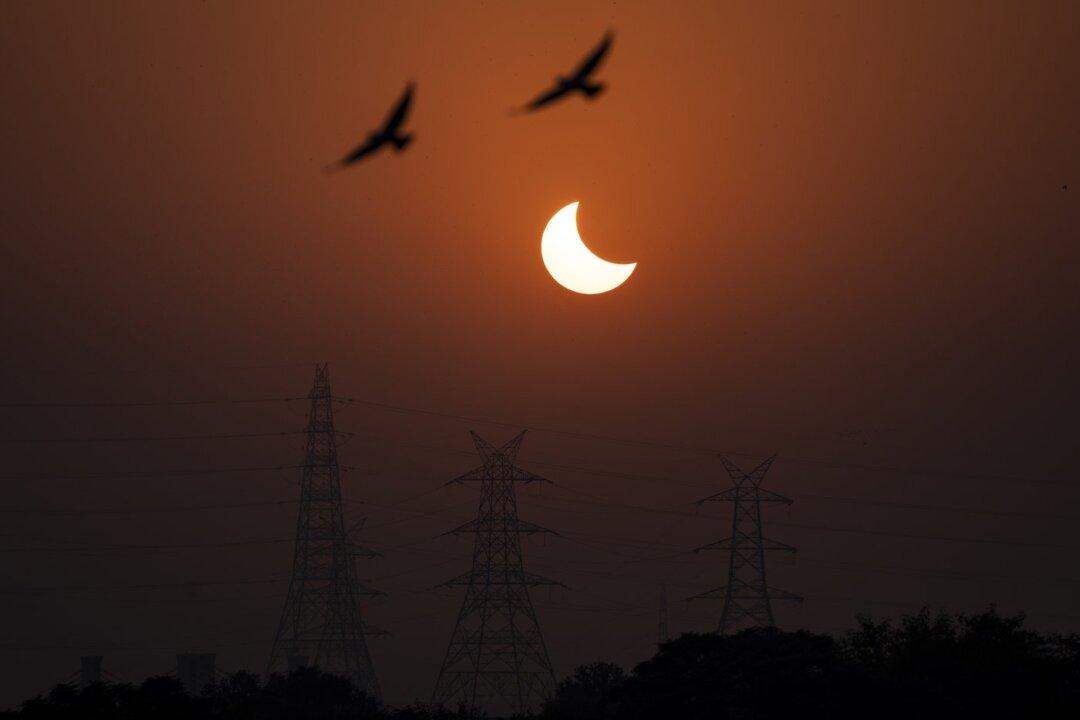Western British Columbia will be the best place in Canada to view a rare annular solar eclipse set to happen Saturday, but cloudy skies could obscure the phenomenon for many viewers.
An annular solar eclipse occurs when the moon passes between the Earth and sun, and because it happens when the sun is at its farthest point from Earth, viewers are treated to a bright halo surrounding the black blot of the moon.





